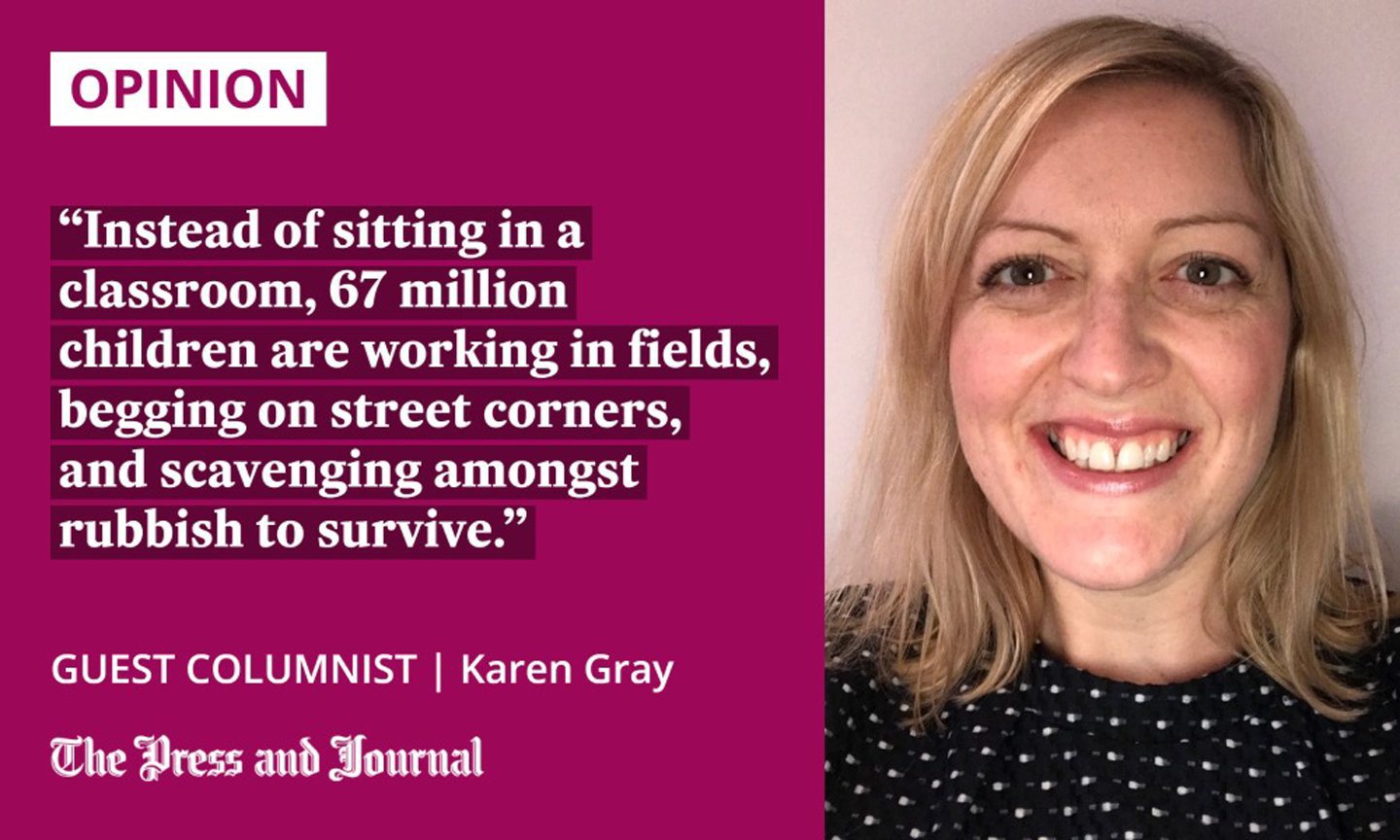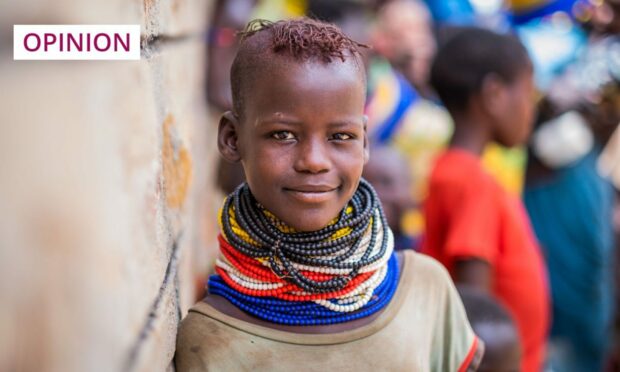Cracks zigzag across the parched ground in Turkana, northern Kenya. They are the consequence of the country’s worst drought in 40 years.
The livestock that communities rely on for food and work is dying, families are hungry, and water can barely be found.
I witnessed a great deal of suffering on a recent visit to this area. And, yet, I was heartened to also see the hope which is alive in the communities I met – hope in the shape of a nutritious bowl of beans and maize, served to hungry children in schools.
I saw this hope in the volunteers who rise at the crack of dawn to cook Mary’s Meals for their children; in the dedicated teachers who educate with enthusiasm, despite having few resources; and in the parents who long for their children to build a better life through learning.
I saw it in the faces of the little children as they queued for their serving of food.

Every school day, we reach more than 2.4 million hungry children in 18 of the world’s poorest countries. World Hunger Day (May 28) is a good opportunity to pause for a moment and think about the role we can play in helping these children.
You might be surprised to know that a donation of just £19.15 will feed a child with Mary’s Meals every day for a school year. That’s right: less than £20 will transform a child’s life.
It is true to say that hunger is not just a result of poverty, but the cause of it, too. Around the world, 67 million primary school-age children are out of school. Instead of sitting in a classroom, they are working in fields, begging on street corners, and scavenging amongst rubbish to survive. Millions more attending school are so hungry that they are not able to concentrate and learn.
Yet, we know that this cycle of poverty can be broken. The promise of a good meal attracts these children into the classroom, giving them the chance to gain an education and look to a brighter future.
Food can help families towards a more secure future
On my trip to Turkana, I met a little girl named Sunday. Her family has experienced many hardships, brought about by four seasons of drought.
Sunday told me: “When I was younger, I helped look after our goats. But the drought meant the goats weren’t giving birth and the milk stopped coming. Then they died. Others were stolen. Soon, all we had left were a few cows, so last year we settled here and I started school.”
Sunday often arrives at school with an empty stomach. She expects little to eat when she returns home later that day, so her serving of Mary’s Meals is gratefully received.
“At home, we eat only sorghum (cereal),” she says. “That is why the food here is so important – it fills us up.”
For over two decades, our school feeding programme has been generating real and measurable change in some of the world’s poorest and most vulnerable communities.
Find out more – https://t.co/jQy4NvYVbA#SmallChangeBigImpact pic.twitter.com/EV8luHMjn2
— Mary’s Meals (@MarysMeals) May 23, 2023
Not only does the food ensure that Sunday can concentrate in class, but it is helping her family to look to a much more secure future. At Mary’s Meals, we strongly believe that children like Sunday can grow up to become the adults who can lift their communities out of poverty.
Today, we face some of our greatest challenges yet in a world devastated by conflict, climate change, food insecurity and the cost-of-living crisis. It is easy to feel hopeless, but every single thing that people do for our mission makes an enormous difference to the children who eat Mary’s Meals.
For more than 20 years, we’ve only been able to keep reaching hungry children, like Sunday, because of the kindness of those who believe in our mission.
- You can visit marysmeals.org.uk for more information on how to donate
Karen Gray is UK director of communications at Mary’s Meals

Conversation